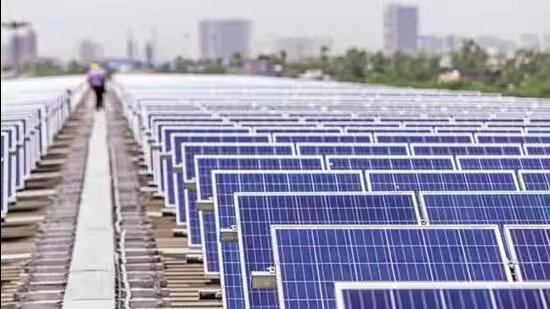Punjab State Power Corporation Limited signs ninth PPA in two years for 2,800MW of solar power at an average cost of ₹2.51/unit
In its ninth power purchase agreement (PPA) since the Aam Aadmi Party government took charge two years ago, the Punjab State Power Corporation will buy 300 MW from Solar Energy Corporation of India Limited (SECI) for an economical ₹2.72/unit.
The agreement was signed on December 30, 2023, and is a step towards PSPCL meeting its target of procuring 6,000 MW of solar power. The PSPCL hopes to bring down the average cost of power purchase, which is Rs. 4.30/unit from all its resources at present.
So far, the PSPCL has nine PPAs for 2,800MW of solar power at an average rate of ₹2.51/ unit. Most of these PPAs have been signed with public sector companies (see box) for 25 years.
The PSPCL has floated tenders for another 2,500 MW of power and these will be opened in two months. This includes a 1,000 MW solar power plant in Punjab.
As on October 31, 2023, 1,266.6 MW of solar power was generated in Punjab at an average cost of ₹6.50/unit.
“At present, the average cost of solar power is ₹6.50/unit as PPAs were signed without bidding earlier. For the past two years, every PPA is made after bidding with a ceiling on the rates. The new PPA will help cut cost,” said a senior PSPCL official.
The official said that the PSPCL is working to ensure that power is available during the peak demand season of paddy sowing in summer. It hopes to use solar power to run tubewells.
All India Power Engineer Federation spokesman VK Gupta admitted that initially solar power was costly, but Punjab should have done reverse bidding. “PPAs are signed only through calling expression of interest. Once reverse bidding starts, prices fall. Buying solar power will help meet the demand in summer with no additional impact of fixed cost, which is huge in the case of private thermal plants,” he said.
State power minister Harbhajan Singh ETO said buying power at an average cost of ₹2.50/unit was possible because the AAP government ensured transparent bidding.
source : hindustantimes







Leave a Reply